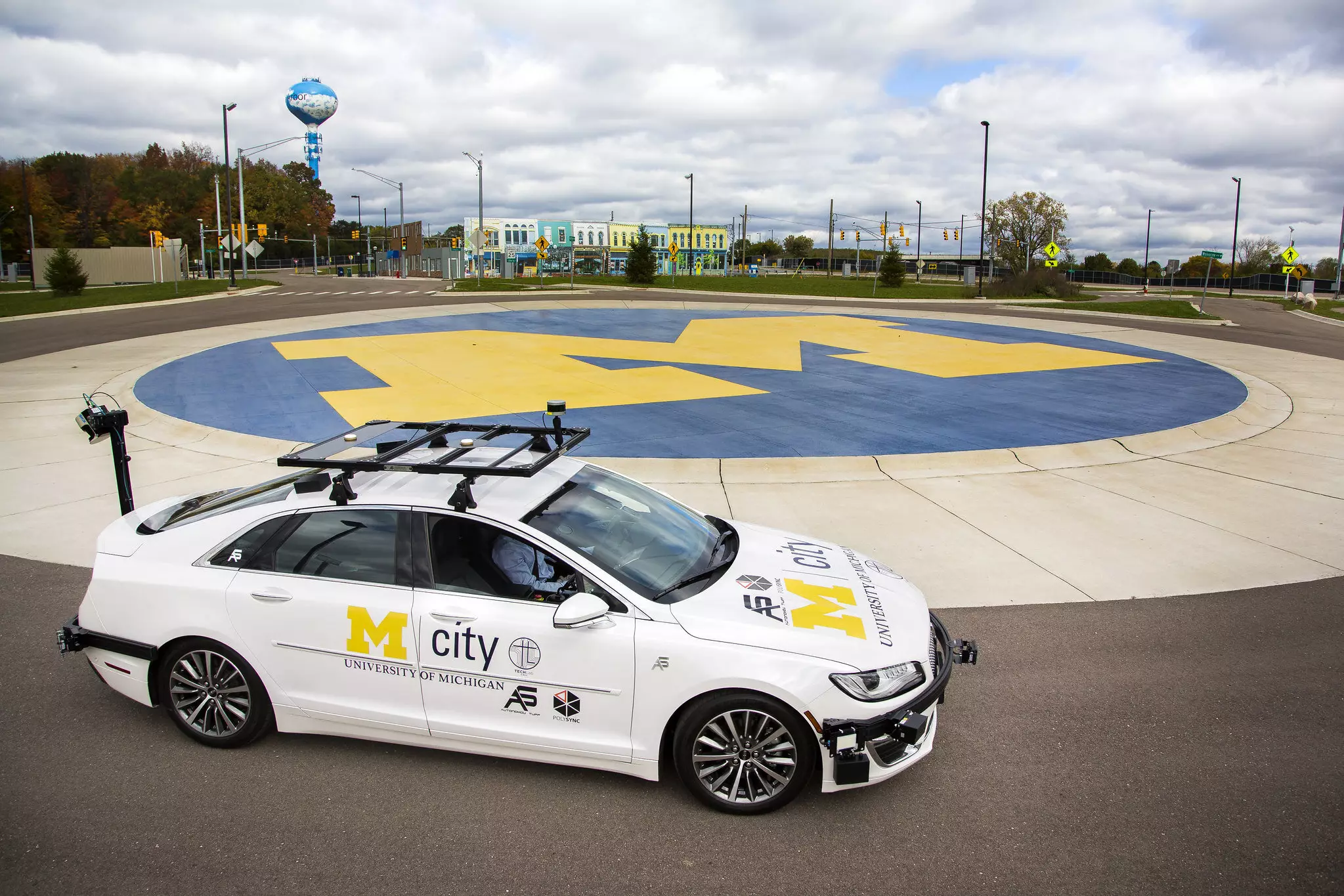Self-driving vehicle networks that rely on collaboration and communication with each other or infrastructure face a significant risk of data fabrication attacks, as highlighted in a recent study led by the University of Michigan. This network of collaboration, known as vehicle-to-everything (V2X), is still in the development phase, but many countries are already testing this technology on a small scale. The potential for hackers to introduce fake objects or manipulate real objects in perception data poses a serious threat to the safety of connected and autonomous vehicles.
The study conducted by the researchers at the University of Michigan focused on understanding and countering these data fabrication attacks in self-driving vehicle networks. By administering falsified LiDAR-based 3D sensor data that appeared realistic but contained malicious modifications, the researchers were able to assess the vulnerabilities of the system. They introduced zero-delay attack scheduling, a high-risk cyber attack that uses precise timing to introduce malicious data without delay.
In virtual simulations, the attacks were highly effective with success rates reaching 86%. On-road attacks in real-world scenarios triggered collisions and hard brakes in three vehicles at the Mcity Test Facility. To prevent such attacks, the researchers developed a countermeasure system called Collaborative Anomaly Detection, which leverages shared occupancy maps to cross-check data and detect abnormal data quickly. This system achieved a detection rate of 91.5% with a low false positive rate of 3%, reducing safety hazards in testing scenarios.
The findings of this study not only highlight the security vulnerabilities in collaborative perception systems used in self-driving vehicles but also provide a robust framework for improving safety measures. The researchers emphasize the importance of advancing security measures in connected and autonomous vehicles to protect passengers and ensure the safety of other drivers on the road.
By sharing comprehensive benchmark datasets and open-sourcing their methodology, the researchers at the University of Michigan aim to set a new standard for research in the field of autonomous vehicle safety and security. This collaborative effort fosters further development and innovation in the implementation of preventive measures against data fabrication attacks, not only in transportation and logistics but also in smart city initiatives and defense systems.
The study conducted at the University of Michigan sheds light on the potential threats of data fabrication attacks on emerging self-driving vehicle networks. By identifying vulnerabilities and developing preventive measures, the researchers have taken a significant step forward in ensuring the safety and security of connected and autonomous vehicles. The collaboration between academia and industry in this domain will drive further advancements in autonomous vehicle technology, ultimately benefiting society as a whole.

